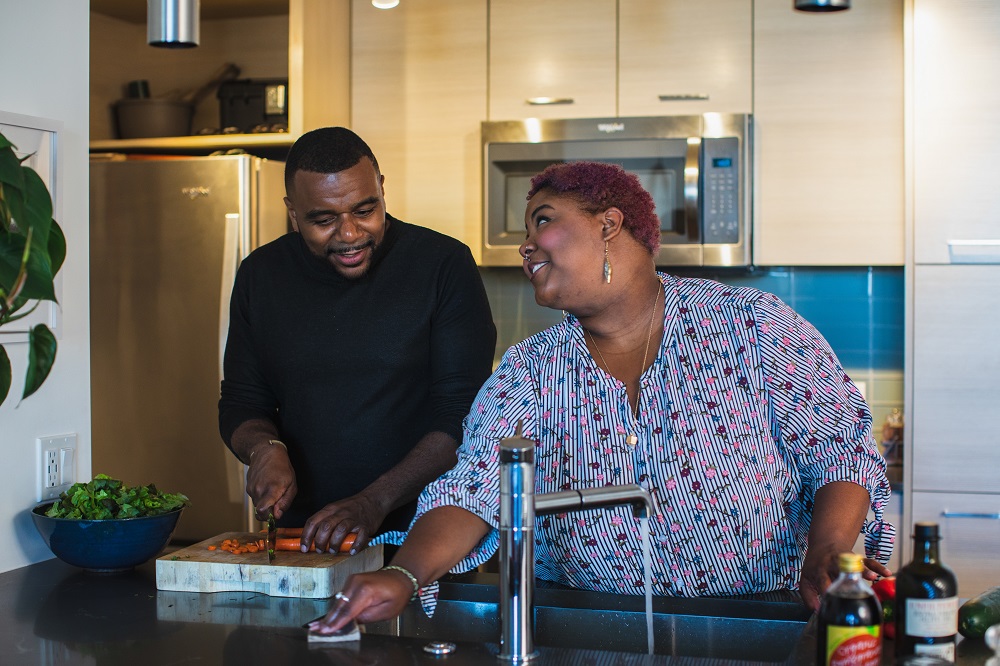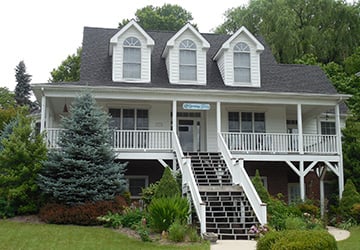If you're familiar with a mortgage, you know it's a home loan you pay back over time with interest. With a reverse mortgage, your lender makes payments to you, and you don't pay interest upfront. The most common type of reverse mortgage is a HECM (home equity conversion mortgage). So, who can take advantage of a reverse mortgage?
A reverse mortgage is designed for people over the age of 62. Many homeowners use a reverse mortgage to fund their retirement and provide a means to continue living in their homes. A reverse mortgage is used to access home equity without having to sell your home.
- You don't have to have good credit
- You don't have to have an income
- You don't have to make loan payments

The amount you can borrow in a reverse mortgage loan is based partly on what your home is worth and the initial principal limit (significantly less than the home's appraised value). In other words, you will have to use some of your home equity to pay off the loan expenses, like interest and mortgage premiums. With a reverse mortgage, you can borrow more when mortgage rates are low, and your property's appraised value is high.
You don't need to have good credit or an income to qualify for a reverse mortgage like you would need with a traditional mortgage. You don't have to make any loan payments with a reverse mortgage, and the loan balance isn't due until you die, permanently move out, or sell the home. So instead of paying down a traditional home loan, a reverse mortgage will leave you owing more and more to your lender over time as interest and fees grow with the loan balance each month.
A reverse mortgage loan is structured so that the amount of the loan won't exceed the home's value.
You can receive proceeds from a reverse mortgage in a variety of ways.
- Lump sum payment plan: can only borrow up to 60% the first year due to limits set by the federal government. Choosing a lump sum plan will not allow you to access more money from your home once you've spent all of the money unless you switch to a plan that includes a variable interest rate. A lump sum payment is the only option with a fixed interest rate.
- Tenure payment plan: you receive a fixed amount each month.
- Line of credit: you borrow money as needed from a credit line and only pay interest on the amount borrowed.
- Equal monthly payments plus a line of credit: You receive monthly payments from your lender, and if you need more money, you can access a line of credit.
- Term payment plus a line of credit: you receive equal monthly payments from your lender for a chosen period of time (ex. 12 years), and if you need more money, you can access a line of credit.
Interest rates are variable with all reverse mortgages, with the lump sum reverse mortgage being the exception.
When you get a reverse mortgage, you will pay upfront FHA (Federal Housing Association) mortgage insurance premiums to ensure that you or your heirs don't have to repay more than the home's value when the loan becomes due. You must maintain the property and pay property taxes as well. Fortunately, you can include closing costs in the reverse mortgage, so you don't have to pay cash at closing. Other fees associated with a reverse mortgage include the following:
- Closing costs
- One-time fees
- Origination fees
- The interest you accumulate on the loan balance (taken out of your remaining equity)
Reverse mortgage requirements: Stay current on your property taxes and homeowners insurance.
Repayment
As mentioned earlier, a reverse mortgage must be repaid if you sell your home, move out for over a year, or when you pass away. Also, if you stop paying your property taxes or homeowners insurance premiums, you will have to repay the reverse mortgage. If a spouse remains living in the house, an exception may be made regarding repayment of the reverse mortgage.
Conclusion
A reverse mortgage may be right for you if you're over 62 and want more financial security in retirement. A reverse mortgage should not be used as a crutch to get through a significant financial crisis. Instead, a reverse mortgage should be used as a sound financial plan to help you in retirement. If you need assistance with expenses like meals, medication, property taxes, or your heating/cooling bills, other options likely exist in your area and should be considered.














